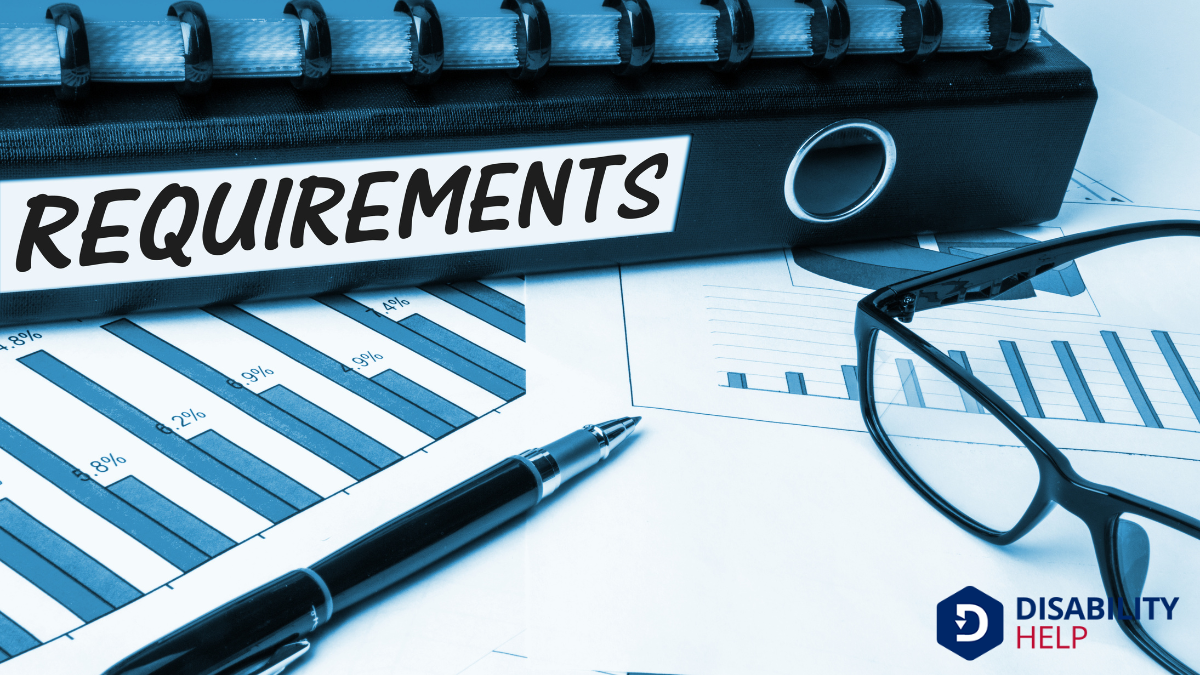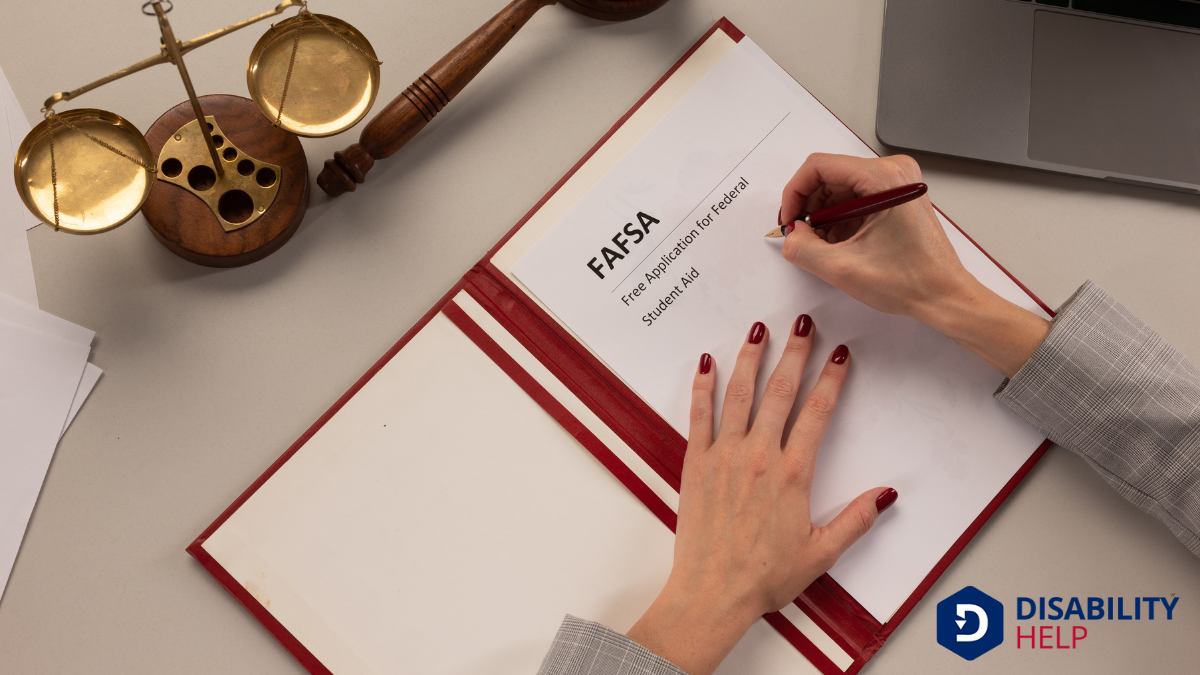You're probably wondering if Pell Grants are an option for disabled students. These grants, known for their focus on financial need, aren't out of reach for those with disabilities. In fact, your unique circumstances can enhance your application. But how exactly does this work, and what steps should you take to guarantee you get the most out of this opportunity? Let's explore how you can make this work for you.
Key Takeaways
- Pell Grants are available to eligible students, including those with disabilities, based on financial need.
- Disabled students must complete the FAFSA to assess financial need and Pell Grant eligibility.
- Registered disabilities can provide adjusted enrollment requirements, potentially positively impacting Pell Grant eligibility.
- Disabled students should consult the financial aid office for specific guidance on maximizing Pell Grant benefits.
- Additional disability-specific financial aid options are available, complementing Pell Grants for eligible students.
Understanding Pell Grants and Their Purpose
While maneuvering through the landscape of financial aid, it's essential to grasp the role of Pell Grants and how they can support your education. Pell Grants are federal funds provided to eligible students to help cover tuition and other college-related expenses.
Unlike loans, you won't have to repay a Pell Grant, making it a desirable option for many students. The grant aims to ease the financial burden, allowing you to focus more on your studies rather than worrying about debt.
Understanding the purpose of Pell Grants can empower you to make informed decisions about financing your education. These grants are designed for students with financial need and can be a significant stepping stone toward achieving their academic goals without the stress of repayment.
Eligibility Requirements for Pell Grants

Before you apply for a Pell Grant, it's crucial to understand the eligibility requirements to determine if you qualify.
First, you must be a U.S. citizen or an eligible noncitizen. You need a valid Social Security number, and if you're male and between 18 and 25, you must register with the Selective Service.
Be enrolled or accepted for enrollment in an eligible degree or certificate program at a participating institution. You should also maintain satisfactory academic progress in college.
Finally, you can't already hold a bachelor's degree to qualify for a Pell Grant. Remember that Pell Grants are primarily for undergraduate students.
Knowing these requirements helps you prepare your application with confidence, ensuring you meet the necessary criteria.
Financial Need Assessment for Pell Grants
To determine if you're eligible for a Pell Grant, the financial need assessment is a vital step.
You'll need to fill out the Free Application for Federal Student Aid, or FAFSA. This application evaluates your financial situation by considering your family's income, assets, and the number of family members in college.
The Expected Family Contribution (EFC) is then calculated, which helps determine your financial need. The lower your EFC, the more likely you are to receive a Pell Grant.
By understanding your family's financial landscape, the government can better assess how much assistance you need. Remember, the goal is to bridge the gap between what you can afford and the cost of attending college.
Filling out the FAFSA accurately is essential for this process.
Impact of Disability Status on Financial Aid
Having a disability can greatly influence your eligibility for financial aid, including Pell Grants. You might wonder how your disability status affects your financial aid opportunities.
While Pell Grants primarily focus on financial need, your disability can indirectly impact the amount of aid you receive. For instance, if your disability limits your ability to work, this could influence your income, thereby affecting your Expected Family Contribution (EFC) and increasing your financial need.
Additionally, some schools consider disability-related expenses as part of your cost of attendance, possibly increasing your aid eligibility.
It’s essential to understand how these factors work together. You should explore all available resources and support systems to guarantee you’re maximizing your financial aid opportunities while pursuing your education.
Application Process for Pell Grants

Understanding how your disability status impacts financial aid is an essential step towards maximizing your Pell Grant eligibility.
Begin by completing the Free Application for Federal Student Aid (FAFSA) to determine your financial need and eligibility. Take note that while the FAFSA doesn't directly ask for disability status, it plays a vital role in evaluating your financial situation.
Here's how you can proceed:
- Gather Necessary Documents: Confirm you have your Social Security number, federal tax information, and records of untaxed income.
- Submit the FAFSA Early: Apply as soon as possible after October 1st to maximize your aid chances.
- Review Your Student Aid Report (SAR): This report summarizes your FAFSA data and indicates your Expected Family Contribution (EFC).
Special Considerations for Disabled Students
Although maneuvering financial aid can be challenging, special considerations exist for disabled students that may enhance your Pell Grant eligibility. Understanding these can simplify your journey.
If you’ve got a registered disability, you might qualify for adjusted enrollment requirements. This means you could receive aid even if you're attending school part-time. Make sure to document your disability properly, as this will strengthen your application.
Additionally, some institutions offer support services that can aid in your financial aid process. It’s important to communicate with your school’s financial aid office to explore any specific accommodationsModifications or adjustments in healthcare settings to support patients with disabilities. available. They can guide you on how your disability might influence your Pell Grant eligibility, ensuring you receive the maximum benefits you’re entitled to.
Additional Financial Aid Options for Disabled Students
If you’re a disabled student, exploring financial aid beyond Pell Grants can open up additional opportunities to fund your education.
You might be eligible for a variety of scholarships, grants, and other aids specifically designed for students with disabilities. Understanding these options can greatly ease your financial burden.
Here are three possibilities to reflect upon:
- Disability-specific scholarships: Many organizations offer scholarships targeting students with specific disabilities.
- State vocational rehabilitationServices that help individuals with disabilities prepare for, obtain, and maintain employment. programs: These programs can provide financial assistance for education and training.
- Private and nonprofit organizations: Some groups offer grants or scholarships to support disabled students in higher education.
Navigating the FAFSA for Pell Grant Eligibility

Exploring additional financial aid options is a great start, but securing a Pell Grant requires a clear grasp of the FAFSA process.
Start by gathering necessary documents like tax returns, W-2s, and proof of income. Once you have these, head to the FAFSA website. Create an account, and verify all personal details are accurate.
Remember, the FAFSA is your gateway to Pell Grant eligibility. Answer questions honestly, especially about your financial situation. If you're disabled, indicate your status, as it might impact your aid package.
Submit your application as soon as possible since aid is often awarded on a first-come, first-served basis. Double-check everything before submitting to avoid errors that could delay your application.
Tips for Maximizing Pell Grant Opportunities
Curious about how to make the most of your Pell Grant opportunities? Start by taking proactive steps that can enhance your eligibility and guarantee you receive the maximum funding possible.
Here are some tips to help you:
- File Your FAFSA Early: Submitting your FAFSA as soon as possible can increase your chances of securing more aid. Funds are often distributed on a first-come, first-served basis.
- Stay Enrolled Full-Time: Being a full-time student might qualify you for more Pell Grant funding compared to part-time enrollment.
- Maintain Good Academic StandingThe legal right to bring a lawsuit, which requires that the individual bringing the suit has a direc...: Keeping your grades up is essential. Falling below your school's satisfactory academic progress can affect your eligibility.
Resources and Support Services for Disabled Students
While maneuvering through college life, you’ll find that a wealth of resources and support services exist specifically for disabled students to guarantee equal accessThe principle that all individuals, including those with disabilities, should have equal opportunity... to educational opportunities.
Start by connecting with your school’s disability services office. They’ll help you understand your rights and the accommodations available, such as extended test times, note-taking assistance, or adaptive technology.
Don’t hesitate to explore tutoring centers and counseling servicesProfessional guidance to help individuals cope with emotional, mental, or social challenges., which can provide academic support and mental health resources tailored to your needs.
Additionally, many universities offer peer mentoringA relationship where a more experienced individual with a disability provides guidance and support t... programs where you can connect with fellow students who’ve navigated similar hurdles.
Conclusion
As a disabled student, you've got access to Pell Grants just like any other eligible student. Make sure you complete the FAFSA to demonstrate your financial need, and don't hesitate to provide documentation of your disability—it can strengthen your application. Explore additional financial aid options and take advantage of support services at your institution. With the right resources and strategies, you can minimize debt and maximize your educational opportunities. Remember, you're not alone in this journey!






